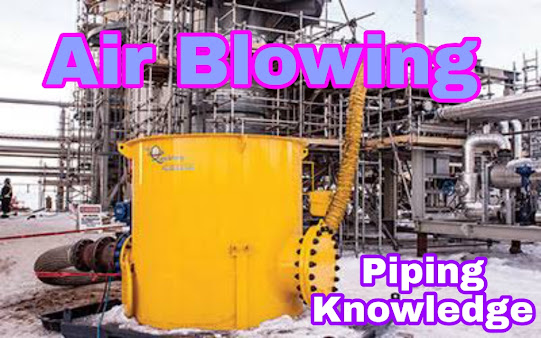Pre-comissioning Engineering as per Process plant.
The Pipeline commissioning means introducing crude/ product/Gas in the pipeline from originating station, filling the entire length and then start delivering to receipt system.
The commissioning process is the integrated application of a set of engineering techniques and procedures to check, inspect, and test every operational component of the project—from individual functions such as instruments and equipment, up to more complex entities such as subsystems and systems.
INDEX:-
- What is Commissioning?
- What is Mechanical Completion?
- What is Pre-Commissioning?
- Role and Responsibilities of Plant Pre-Commissioning?
- Standards Operating Procedure (SOP)?
- Pre-Commissioning Procedures?
- Why pipe line Commissioning procedure is Important?
1 . What is Commissioning?
- The commissioning process is the integrated application of a set of engineering techniques and procedures to check, inspect, and test every operational component of the project from individual functions such as instruments and equipment, up to more complex entities such as subsystems and systems.
- Commissioning is the phase in a project when design process fluid or safe fluid is introduced to the systems and sub-systems.
- The Pipeline commissioning means introducing crude/ product/Gas in the pipeline from originating station, filling the entire length and then start delivering to receipt system.
- There are eight stages of the commissioning process, which include; preparation, design, pre-construction, construction, commissioning of services, pre-handover, initial occupation, post-occupancy care.
- Before a plant or facility is handed over for normal operation, it should be inspected, checked, cleaned, flushed, verified and tested. This process is called commissioning and involves both the contractor and operator of a facility. The transition from construction to operation is the commissioning and startup.
2. What is Mechanical Completion?
- Mechanical completion is a milestone that is achieved when all specified work is complete and subsequent acceptance inspection and physical testing is satisfactorily performed and documented.
3. What is Pre-Commissioning?
- Pre-commissioning is the series of processes carried out on the pipeline before the final product is introduced.
- The process during which the pipeline is made live i.e. the product is put in the pipeline, is called pipeline commissioning or startup.
- Pre-commissioning means the testing, checking and other requirements specified in the Technical Specifications that are to be carried out by the Contractor in preparation for Commissioning.
The Pre-commissioning phase includes three main types of activities.
1. Conformity checks
2. Static (or) de-energized tests
3. Piping tests
- After completion of these tests, RFC (Ready for commissioning) certificate is issued for each Sub-system and there is NO outstanding punch item category A.
- Commissioning is the final quality check before transfer to the start-up team.
The Commissioning phase comprise of three main types of activities.
- Dynamic verification
- Testing with substitute fluids for startup
- Piping and Vessels start up
- Pre-Commissioning, also known as Static commissioning, starts when a system or sub system achieves Mechanical Completion.
- Whereas Commissioning is the verification process where equipment and systems that have not been operated before, or have been modified, are brought into operation safely in the correct sequence.
- Some of the activities are highlighted and contrasted as below.
Pre-commissioning:
1. Temporary Screens, Strainers and Blinds
2. Air and Steam Blowing
3. Flushing, Chemical and Mechanical Cleaning
4. Cleaning and Passivation
5. Electrical Energizing
6. Instrumentation Verification
Commissioning:
1. Operational Tightness Testing
2. Oil Systems Flushing
3. Loading of Desiccants and Catalysts
4. Refractory Dry out
5. Run in Rotary Equipment
6. Drying out and Inerting
7. Instrument and Electrical Function Testing
8. Function Testing of Safety Systems
4. Roles and Responsibilities of Plant Pre-Commissioning.
The roles and responsibilities of the Project based Process Plant are not limited to the following in sequence.
1. Basic process engineering
2. Detailed engineering
3. Procurement
4. Construction
5. Operations training
6. Mechanical completion
7. Pre-commissioning
8. Commissioning
9. Ready for Start Up
10. Acceptance test run
The main aim of objective training is to instruct operators to safe commissioning and to make specification production while reducing environmental impact.
This is typically include several weeks of training with a plant site visit.
The staff needs general training induction in the following fields:
- Safety and Hazard analysis
- Furnaces
- Boilers and Steam Turbines
- Pumps and Compressors
- Distillation
- Piping and Heat Exchangers
- Process Control Systems
- Electrical Systems
- Catalyst and Molecular Sieve Systems
- Cooling Water System and Treatment
- Process Utilities
- Relief Valve and Flare Systems
- Environmental Reduction
The Plant specific training shall include but not limited to the following:
1. Pre-Commissioning Procedures
2. Commissioning Procedures
3. Plant Specific P&ID Review
4. Distillation Overview
5. Plant Specific Process Variables
6. Normal Start Up and Shut Down Procedures
7. Emergency Shut Down Procedures
8. Plant Specific Environment Procedures
5. Standards Operating Procedure (SOP)?
- A standard operating procedure is a set of written instructions that describes the step-by-step process that must be taken to properly perform a routine activity.
- A standard operating procedure (SOP) is a written document composed of step-by-step instructions used to complete a routine operational task.
- A Standard Operating Procedure is a document which describes the regularly recurring operations relevant to the quality of the investigation.
- The purpose of a SOP is to carry out the operations correctly and always in the same manner. A SOP should be available at the place where the work is done.
6. Pre-Commissioning Procedures?
- Pre-commissioning encompasses of activities to ensure transition between the mechanical completion and commissioning/start up of process plants.
The following are some types of Cleaning:
- Oil and gas pipelines are designed to carry volatile and highly flammable contents over long distances. It is vitally important that these transport mechanisms are built to conform to the highest possible standards.





Comments
Post a Comment